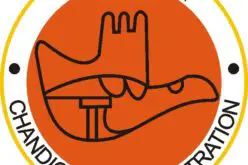The Government of India has made significant strides in Soil Health Monitoring through the Soil Health Card (SHC) Scheme, launched in 2014-15. This initiative aims to improve soil fertility and optimize fertilizer use for sustainable agriculture. So far, 24.74 crore SHCs have been issued across the country, with ₹1706.18 crore allocated to States and Union Territories to support the program.
To enhance Soil Health Monitoring, 8272 soil testing laboratories have been established nationwide. These include 1068 Static Soil Testing Labs, 163 Mobile Soil Testing Labs, 6376 Mini Soil Testing Labs, and 665 Village-Level Soil Testing Labs (VSTLs). These labs provide essential soil analysis, helping farmers make informed decisions about nutrient management. However, data from VSTLs set up by entrepreneurs and Self-Help Groups (SHGs) is not maintained centrally.
Also Read – Soil Quality Analysis for Smart and Sustainable Farming
The Soil and Land Use Survey of India, under the Ministry of Agriculture & Farmers Welfare, plays a crucial role in soil assessment and training. It conducts specialized programs covering Soil Health Monitoring, GIS-based soil database applications, soil mapping, and geospatial technology for resource management. In 2024, officers from West Bengal and the North-Eastern states attended training, while in 2025, officials from Jammu & Kashmir participated.
Significant progress has also been made in large-scale Soil Health Monitoring projects. The government has completed soil mapping at a 1:10,000 scale for 290 lakh hectares, covering 40 aspirational districts. Additionally, 1987 village-level soil fertility maps have been generated for 21 States and Union Territories to help guide farmers in balanced fertilizer use.
These initiatives are critical in promoting sustainable agriculture, improving crop yields, and ensuring better resource utilization. Minister of State for Agriculture and Farmers Welfare, Shri Ramnath Thakur, shared this update in a written reply to the Lok Sabha.
Source: PIB











